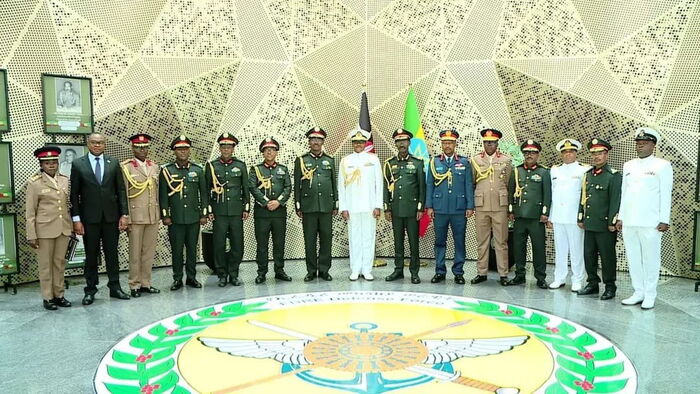Kenya and Ethiopia have taken a bold step toward strengthening regional security by signing a historic military cooperation pact in Addis Ababa on September 24. The agreement was formalized at the Ethiopian National Defence Headquarters after high-level talks between the Chief of General Staff of the Ethiopian National Defense Force, Field Marshal Birhanu Jula, and Kenya’s Chief of Defence Forces, General Charles Muriu Kahariri.
According to Ethiopia’s ambassador to Kenya, General Bacha Debele Buta, the deal builds on the long-standing fraternal relationship between the two nations that spans diplomatic, political, and economic ties.
The pact focuses on key areas of defence cooperation, including:
- Joint military training to improve preparedness and coordination.
- Border protection to safeguard both nations from cross-border insecurity.
- Counter-terrorism operations aimed at addressing extremist threats in the region.
- Defence industry development to strengthen local capabilities.
- Intelligence sharing to enable faster responses to emerging threats.
General Kahariri described the agreement as a strategic investment in Africa’s security. “African nations must increasingly rely on their own capabilities and cooperation. This is a clear expression of African self-reliance, mastering our collective fate through cooperation, ingenuity, and shared action,” he stated.
Field Marshal Jula echoed this commitment, calling the pact a continuation of the historic relationship between Kenya and Ethiopia.
The partnership is particularly significant given Ethiopia’s recognized military strength. Ranked 52nd globally in the 2024 Global Firepower review, Ethiopia fields an estimated 162,000 soldiers, supported by elite units such as the Agazi Commandos and the Republican Guard.
For Kenya, the deal comes at a critical moment. The United Kingdom recently flagged Kenyan borders as hotspots for extremist activity, underscoring the urgent need for stronger defence collaboration.
By forging this alliance, Kenya and Ethiopia are not only bolstering their bilateral security but also setting an example of African nations taking charge of their collective future.

